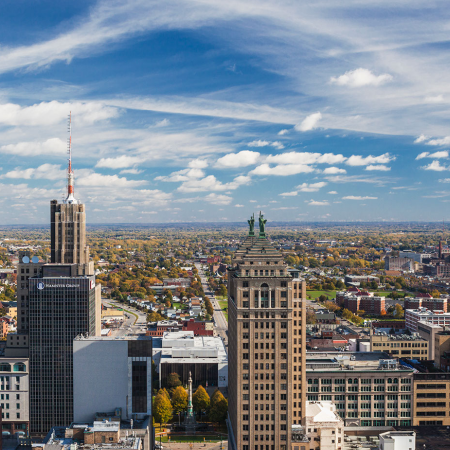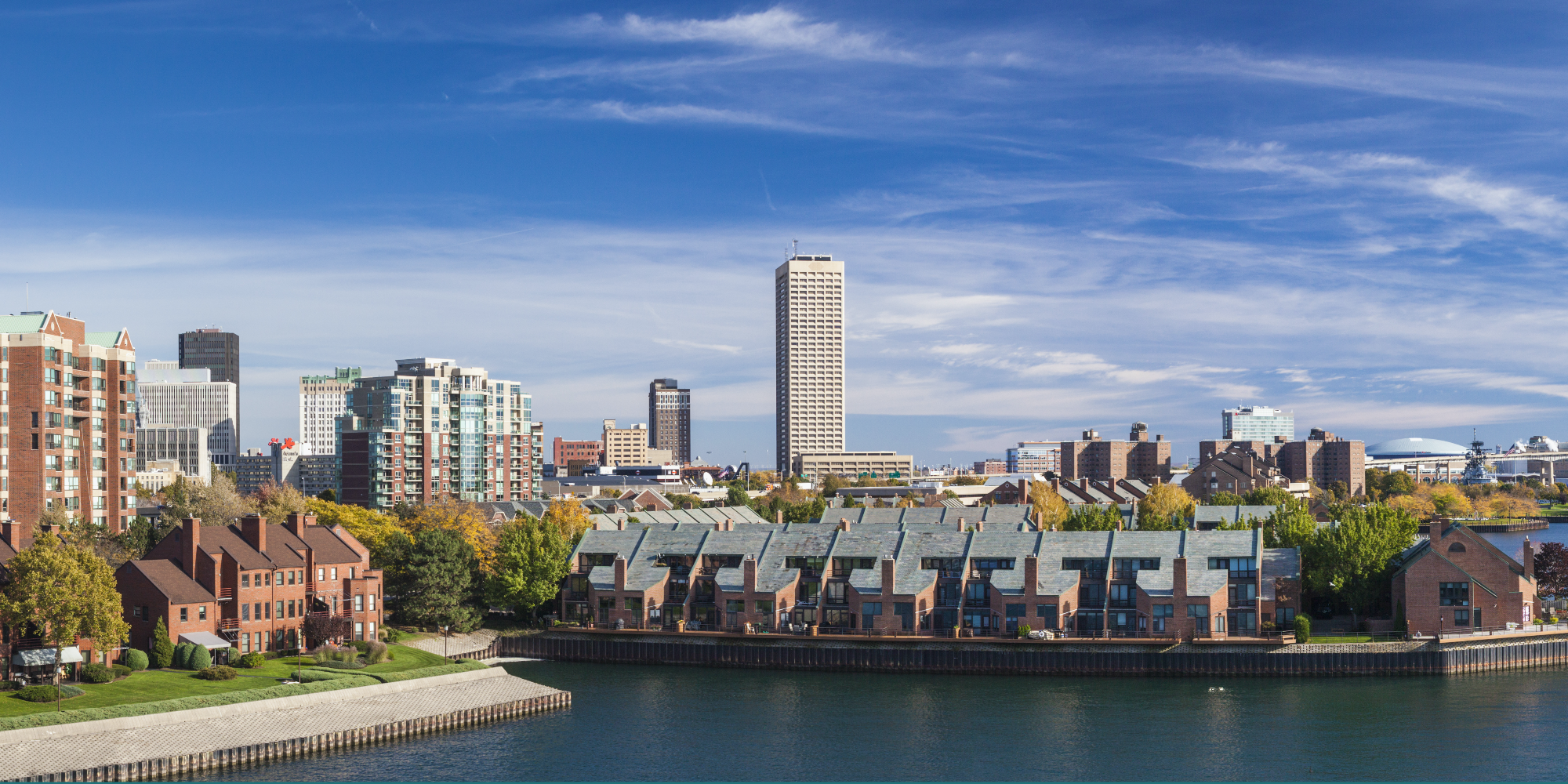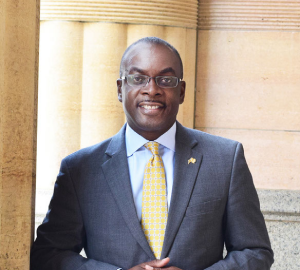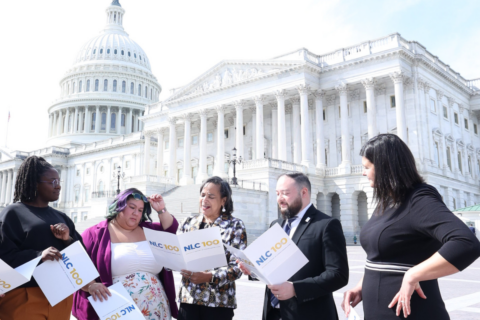On Thursday, April 29, Mayor Byron W. Brown of Buffalo, New York, testified before the House Ways and Means Committee Trade Subcommittee Hearing on Advancing U.S. Economic Competitiveness, Equity, and Sustainability Through Infrastructure Investments. Here are the top takeaways from Mayor Brown for Committee members who are charged with developing the funding mechanisms for an infrastructure package.
1. Infrastructure Grows American City Competitiveness
“I’d like to open by expressing my support for President Biden’s American Jobs Plan because it restores the traditional partnership between the Federal government and local municipalities which previously existed when it came to infrastructure funding. Historically, cities like Buffalo had a partner in the Federal government when it came to building critical infrastructure. That partnership was vital to helping Buffalo, and other communities around the United States, develop their economies, provide working class families the opportunity to have a good home in a stable neighborhood, and sustain a healthy pace of development. However, over the last several decades, the nature of that partnership has changed as the Federal government’s investment grew smaller, putting the burden on local governments to make up the difference.”
2. Equity is Part of Rebuilding Legacy Towns
“The economic crisis fostered by the COVID pandemic offers a unique opportunity for Buffalo to reimagine and create a more equitable City. Infrastructure can be a powerful connector, unfortunately it has often been used to divide America. That is why I am encouraged that President Biden’s American Jobs Plan seeks to intentionally ‘Build Back Better’, the places, like Buffalo, that we all call home.”

“The key to ending this [disinvestment] cycle and restoring a sense of equity to our infrastructure funding is having a re-engaged Federal partner that is willing to help fund the infrastructure work that will allow cities to modernize, employ innovative technologies that reduce maintenance costs, build systems that will be more resilient against the effects of global climate change, and then pass those savings on to residents in an equitable or restorative way.”
“It is also critically important that any infrastructure funding balance the need for a recommitment to large, macro-scale projects which require multi-state cooperation with the local flexibility necessary to use any Federal funds in the manner that will result in the greatest good for the greatest number of residents who have experienced the most harm from the federal government’s previous infrastructure policies. In Buffalo, we are committed to balancing the calls for racial equity, environmental justice, climate change, and economic development in every policy and program we develop and undertake. That same commitment applies to improvements we are making to our local infrastructure.”
3. Get Ready for New Transportation
“New technologies, new services, and new modes of transportation are emerging at a rapid pace. We must have an infrastructure that will be able to meet the demands of these changes if Buffalo is able to take full advantage of these trading opportunities. This means that our transportation infrastructure must be capable of supporting the autonomous electric vehicles that will soon become an important component of the transportation industry. These ‘low or no carbon’ vehicles will rely on the presence of sensors, communications devices, and a charging infrastructure which we ought to lay the foundation for now and be ready to quickly implement when the technology for scaled deployment is available. Smart transportation and mobility as the key to reduce congestion throughout the City.”
“The ability to move goods and people by rail must also be improved if my city is to remain competitive. The United States and Canada’s renewed commitment to reducing greenhouse gas emissions can only be accomplished through a more robust rail network which can quickly and efficiently transport people and products across our border. This will mean dedicated lines for high-speed rail between metro areas like Buffalo and Toronto as well as greater commercial rail capacity so our reliance on other carbon producing modes of transit shrinks.”
4. Build the Digital Highway for Trade
“Trade will also take on an increasingly digital aspect, with information being shared between universities, financial institutions, and biomedical researchers being just as important as the goods which move across our border. To do this, our information infrastructure must have greater capacity, be more secure, and provide greater accessibility to every resident of Buffalo. That last component is critical to ending some of the economic, race and wealth disparities that have grown larger and more rapidly in cities across this nation.”
5. Water Infrastructure Investment is a Family-Friendly Economic Booster
“Infrastructure is an important contributor to our economic development, retaining and attracting Buffalo’s workforce, green infrastructure planning, protecting our public health, and the revitalization of our neighborhoods. Since 2014, Buffalo has invested over $110 million to address stormwater concerns that cause overflows and degrade our waterways. Green Streets have become a leading solution to address climate, water quality, and neighborhood economic problems. We are not asking for just an infusion of funding, but instead for a recommitment to the idea that people who live in cities like Buffalo will have a future where they can raise a family, find a good job, and live a healthier life.”
“With a poverty rate exceeding 30%, many of our residents in Buffalo find it difficult to afford their water bills. Our low-income customers are often faced with the realities of household financial burdens while balancing rent, heat, food and water costs. Buffalo developed and released its Residential Affordable Water Program in 2019 to support our customers in need through operational funds. The $500 million, as proposed in President Biden’s American Jobs Plan, is a one-time programmatic appropriation, to provide funding for Low-Income Water Assistance Program. With a national estimate of need at $8.7 billion annually, significant additional funding for the Low-Income Water Assistance Program is needed to help those households that are unable to pay. Supporting low-income water customers can not solely be left to our City. There is annual budgeted federal support for low income citizens as it relates to food, shelter and energy – it is apparent that this support is necessary for water, that we all know is essential for life. A permanent national low-income water assistance program is necessary if Cities, like Buffalo, are to ensure sufficient revenue to meet infrastructure and mandate requirements, while lessening the burden on the most vulnerable households.”
6. Fixing Lead Pipes Can’t Wait
“Buffalo also continues to protect our most vulnerable from the effects of lead poisoning by optimizing water treatment and eliminating lead service lines. Buffalo has created regulations to ensure that lead service lines are replaced and no longer repaired. Since 2016, Buffalo established an action limit of 5ppb, which still leads the nation, but we understand that the presence of lead service lines endangers our young children and seniors alike. With a commitment under President Biden’s plan to remove 100% of lead service lines, dedicated and flexible investments need to be supported. As the lead service lines here in Buffalo remain the responsibility of the property owner, it is imperative that with the mandated public health responsibility, our municipality is provided the means and authority to fully replace these lead service lines to provide safe drinking water for our residents. Due to the age of our housing stock and our City, we estimate the costs to replace 100% of lead service lines to be $350 – $500 million. Substantial funding and appropriate authority is necessary to eliminate the threat that lead service lines present to our most vulnerable residents.”
Join Buffalo in Asking Congress to Move on Infrastructure
“I am asking the Congress to take a broad and forward-looking view of our infrastructure needs and pass a bill that addresses both the gaps we are immediately confronting as well as the systems we can anticipate being vital to our ongoing success. That is why I hope the members of the Subcommittee will consider supporting this legislation and its capacity to radically improve the lives of Americans now and into the future.”
Last month, NLC released seven key goals for Congress and the Administration to work together with cities, towns and villages on as they advance this next critical step of recovery legislation. We encourage cities to weigh in with Congress on the American Jobs Plan and infrastructure proposals, so that federal leaders know what your community needs.









